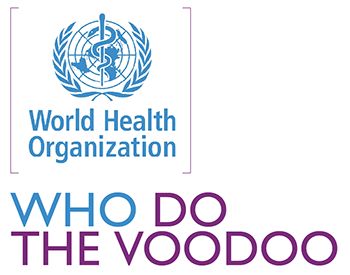WHO DO THE VOODOO
Contrary to the general expectation that WHO, the World Health Organization, is imbued with objective medical science, once again it has issued a document, its world cancer report 2o14, that, in the section on alcohol, seems to me more a prohibitionistic, political polemic than dispassionate, professional and helpful. This is very much a repeat performance of WHO’s sermon on alcohol and health (see this space november 2O11).
Despite a still-amassing Everest of published evidence indicating that moderate drinking promotes health and prolongs life, compared to both abstention and to heavy drinking, WHO can find no virtue in any of us enjoying a drink – no matter the quantity, the type or the pattern of consumption. References were selected, it appears, to support the conclusions arrived at before the report was written, and to boost the reputation of the principal author. As noted in a critique by the International Scientific Forum on Alcohol Research,: although WHO admits that only O.4 percent of the deaths of women and O.8 percent of the deaths of men may be attributable to alcohol, it gives the impression that alcohol is a – or the – leading cause of death throughout the world. Not mentioned are the studies demonstrating that deaths are decreased among moderate drinkers.
Alcohol’s role in cancer formation is only understandable if one attends to the details. Although some cancers – aerodigestive and liver – are associated with drinking, the former especially in concert with smoking, it is only long-term excess that can be faulted. Colorectal cancer appears not to be a concern so long as the vitamin folic acid is not deficient. The data regarding breast cancer is murky and conflicted. There may be cause for concern, but more information is required. Some cancer risks appear to be reduced by moderate drinking.
WHO has lately come under fire in eminent epidemiology journals for counterproductive policies. Alcohol is a particularly emotional issue for some, having reduced one editor to jaundiced journalism in attacking a reasoned critic of the WHO report.
There’s no disputing that heavy drinking, especially in binges, is dangerous to health – the drinkers’ and their neighbor’s. We learned the hard way long ago that the paternalistic, prohibitionary restriction of access to alcohol advocated by WHO doesn’t work to alleviate alcohol-generated problems. Maybe more effective education will help, but that will require truthful transparency.

